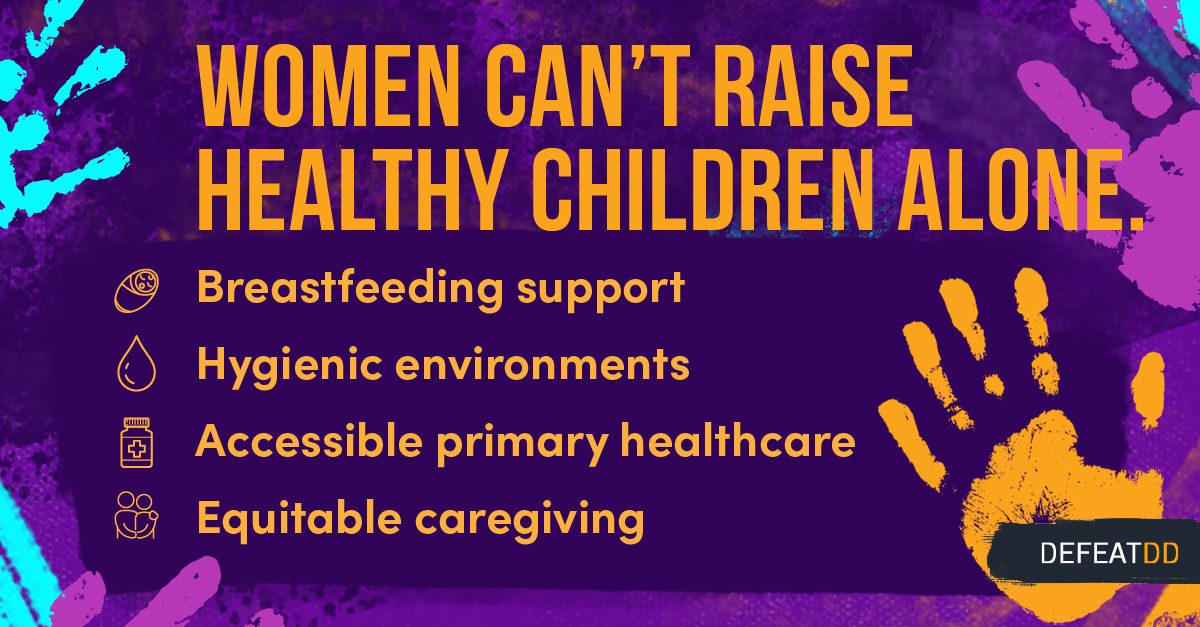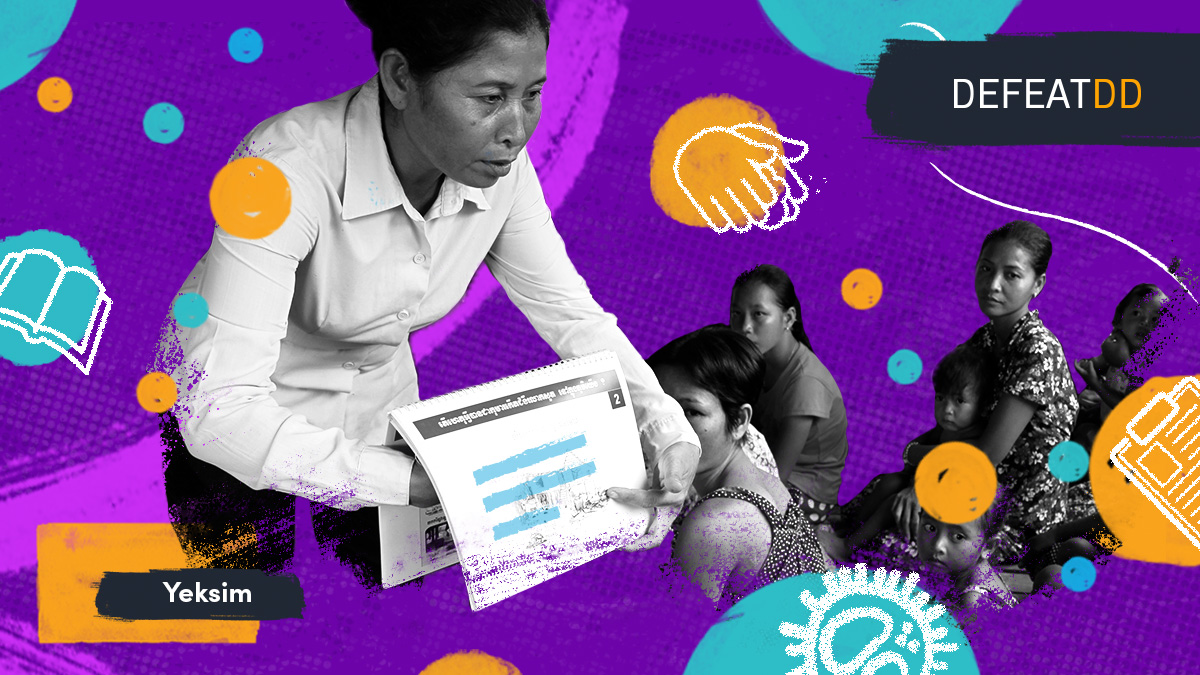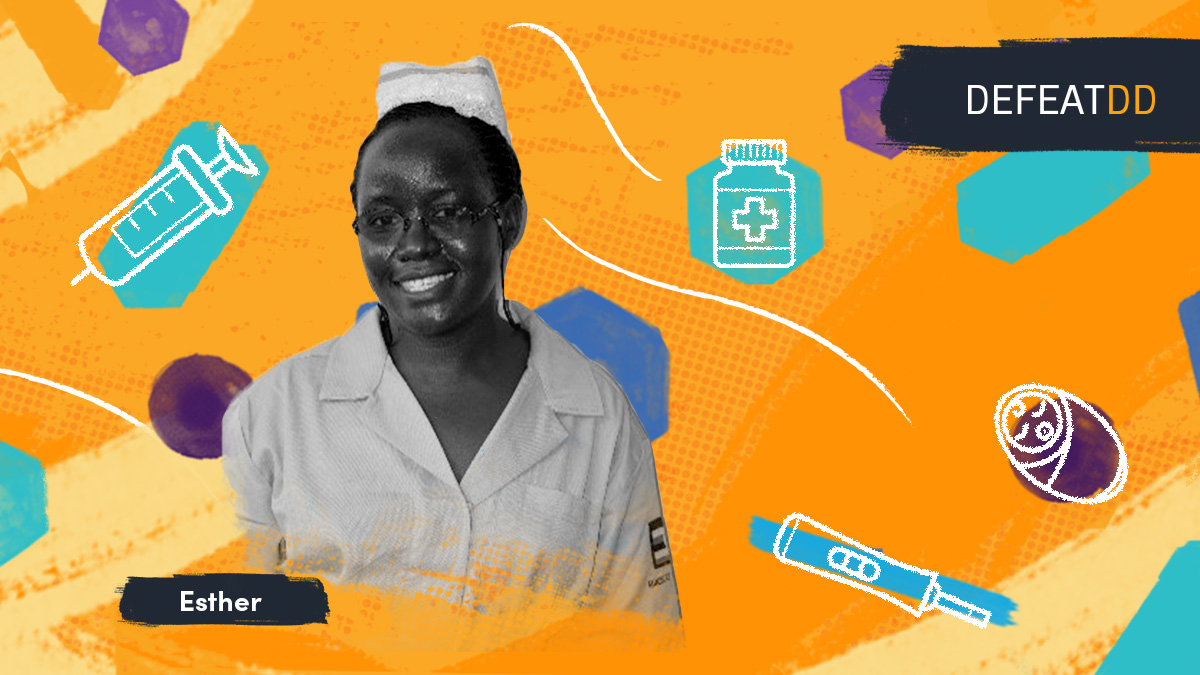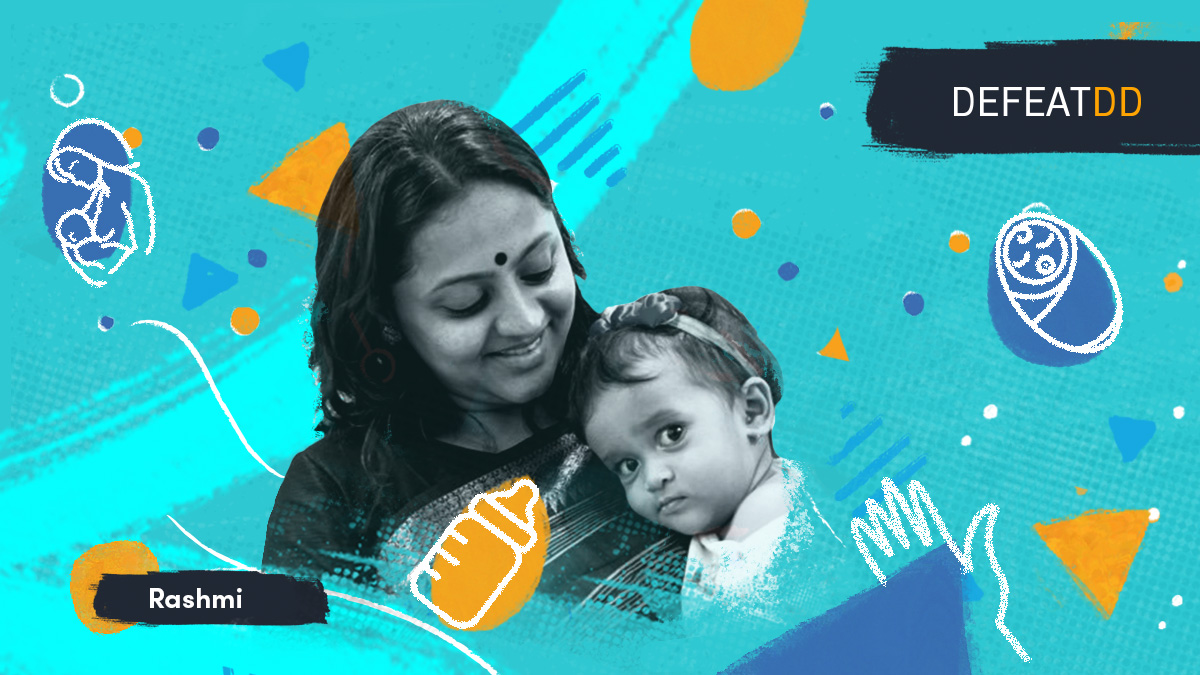
A village chief, a midwife, and a mother: Strengthening gender equity across cultures and roles

Women’s health and well-being are inextricably linked to children’s health and well-being. When women thrive, children are better able to thrive, too. But while the world has made some progress toward gender equality in the past few decades, we are in a gender equality crisis. In large part due to how the COVID-19 pandemic has exacerbated existing gender inequities.
But there is hope. More women are speaking out. Advocates are raising recognition of the importance of knocking down gender barriers to create a more equitable, healthy, and prosperous future, and of the crucial role women play in empowering other women and children.
DefeatDD has been advocating for childhood diarrheal disease prevention and treatment for over 13 years. In that time, we have seen how when women are in charge— as scientists, advocates, political leaders, health care workers, and caregivers—child health improves. Women have been long-time champions of child health, educating mothers, advocating for basic health needs, and lifting other women up.
Meet three of these incredible women: a vice village chief named Yeksim, a midwife named Esther, and a mother-turned-advocate named Rashmi.
Yeksim Chea
When women lead, health and education prosper.
 When we met Yeksim, she was the vice-chief of Duan Tom village in Cambodia. She was intimately familiar with the burden of childhood illnesses in her village. “During the four years that I have been Vice Chief of my village, pneumonia and diarrhea among children are the biggest health issues. Many children in the community, especially the children under the age of five make up a lot of the cases,” she said. In addition to leading the village as vice-chief, she also served as a village health volunteer and worked with a project to increase access to essential medicines. Yeksim took the knowledge that she learned about diarrhea and pneumonia prevention and treatment—including ORS+zinc, vaccines, nutrition, hygiene, and when to seek urgent medical care—and held education sessions with mothers and families in her village. Thanks to this education and improved access to medicines such as zinc, diarrhea and pneumonia cases declined.
When we met Yeksim, she was the vice-chief of Duan Tom village in Cambodia. She was intimately familiar with the burden of childhood illnesses in her village. “During the four years that I have been Vice Chief of my village, pneumonia and diarrhea among children are the biggest health issues. Many children in the community, especially the children under the age of five make up a lot of the cases,” she said. In addition to leading the village as vice-chief, she also served as a village health volunteer and worked with a project to increase access to essential medicines. Yeksim took the knowledge that she learned about diarrhea and pneumonia prevention and treatment—including ORS+zinc, vaccines, nutrition, hygiene, and when to seek urgent medical care—and held education sessions with mothers and families in her village. Thanks to this education and improved access to medicines such as zinc, diarrhea and pneumonia cases declined.
“The introduction of zinc has stopped most of the cases of diarrhea,” Yeksim said. “I’m very happy when I see the kids are healthy.”
Women know what other women and families need. When they’re in charge, children’s health improves.
Women know what other women and families need. When they’re in charge, children’s health improves.
Esther Alamia
When health systems prioritize women’s needs, the whole family benefits.
 Esther is a midwife in Mbale district, Eastern Uganda who is passionate about saving the life of every mother and their baby. When Uganda recently started an effort to package vaccination clinics with other essential services, Esther saw a dual opportunity. These clinics could both ramp up immunization services for babies who have been born because of the recent COVID-19 baby boom and provide antenatal services and family planning for more women. She has seen too many teenage mothers refuse to attend prenatal clinics because they believe they will experience stigma and discrimination, and their babies often suffer as a result.
Esther is a midwife in Mbale district, Eastern Uganda who is passionate about saving the life of every mother and their baby. When Uganda recently started an effort to package vaccination clinics with other essential services, Esther saw a dual opportunity. These clinics could both ramp up immunization services for babies who have been born because of the recent COVID-19 baby boom and provide antenatal services and family planning for more women. She has seen too many teenage mothers refuse to attend prenatal clinics because they believe they will experience stigma and discrimination, and their babies often suffer as a result.
“We have young mothers who fear to visit health facilities, like one 14-year-old girl whom I helped to deliver her baby. She had never attended any antenatal care clinic throughout her pregnancy. She only came for delivery after her membranes ruptured,” Esther said.
By integrating antenatal care with routine immunization, Esther hopes that the clinics will help take services closer to all mothers. If health systems want to reach every child, they need to first reach every mother.
If health systems want to reach every child, they need to first reach every mother.
Rashmi Harale
When support systems enable healthy behaviors, they ease the burden of mothers.
 When our colleague in PATH’s India office met Rashmi, he was momentarily speechless. Due to medical complications, it took Rashmi ten years to conceive her child, and when her daughter was born prematurely after a traumatic birth, she had to stay in a neonatal intensive care unit (NICU) for nearly three months. But despite all this, Rashmi was determined to breastfeed her baby in order to give her the best start in life.
When our colleague in PATH’s India office met Rashmi, he was momentarily speechless. Due to medical complications, it took Rashmi ten years to conceive her child, and when her daughter was born prematurely after a traumatic birth, she had to stay in a neonatal intensive care unit (NICU) for nearly three months. But despite all this, Rashmi was determined to breastfeed her baby in order to give her the best start in life.
For the first three months, with great help from her doctor, husband, and family, Rashmi manually expressed her milk in order to feed her baby, since he could not breastfeed directly. During this time, she also learned about and became a passionate advocate for breast milk donation. She not only started donating her own milk so that other vulnerable babies could benefit, but also began advocating and educating other mothers to encourage them to donate to human milk banks.
Donating breast milk enables babies born prematurely to get the best possible nutrition to grow strong and develop robust immune systems to fight diseases like diarrhea. It also requires investment in human milk banks, including during COVID-19, and strong support systems. Above all, it requires compassionate women like Rashmi.
…
The Generation Equality Forum, taking place from June 30 to July 2, 2021, provides a critical opportunity for gender equality advocates from every sector of society to drive urgent action and accountability for gender equality: register to join for free, make a commitment, or join the conversation on Twitter. No matter our role or position, we can all help ensure a more equitable future for women, children, and families.


